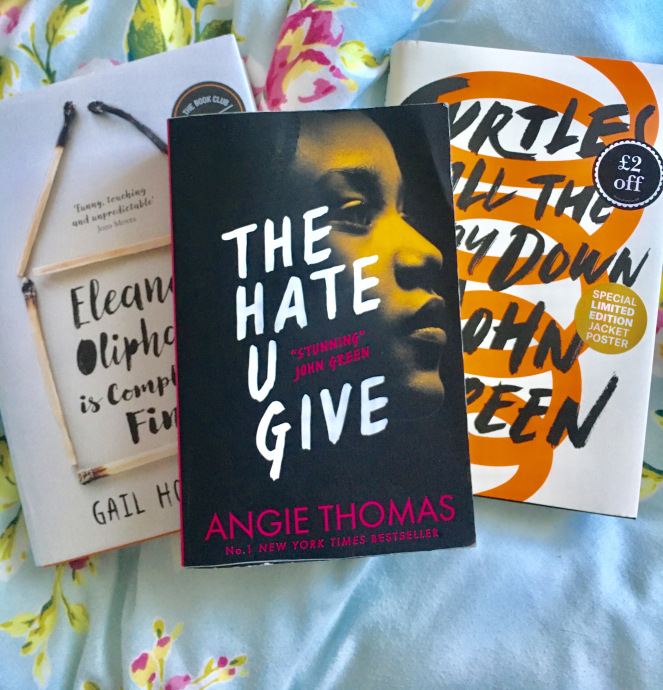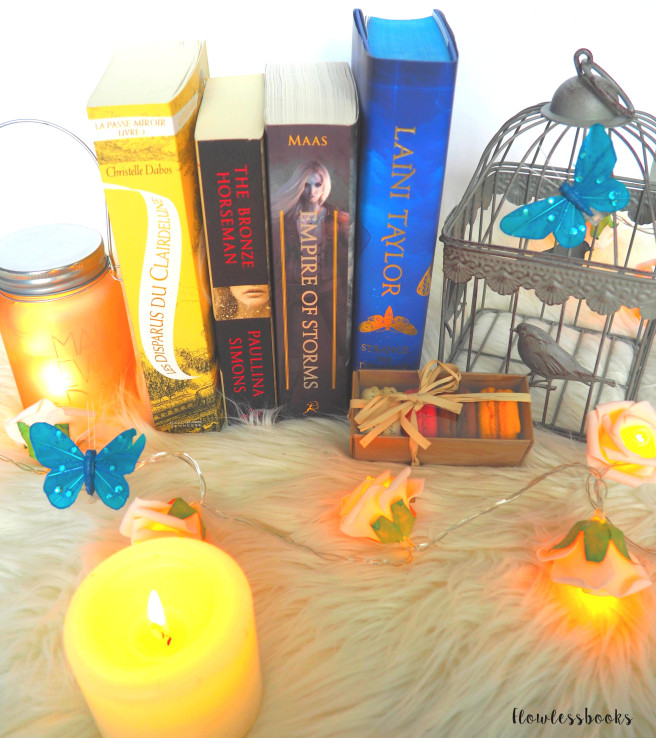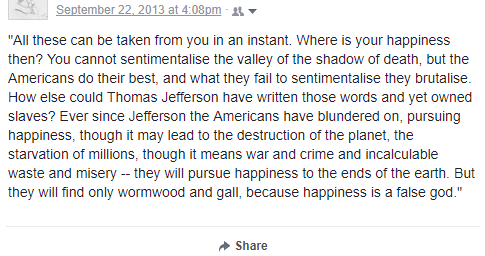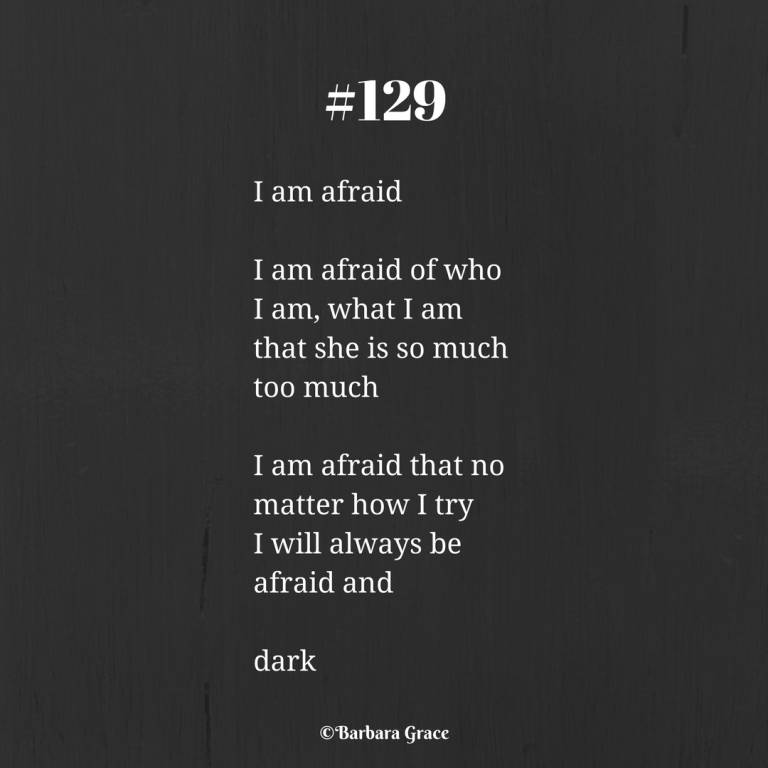
So September was a bit of a pass month for reading; but then October was a bit of a mad reading month; and I’m actually almost back on track for my reading goal! I hope you have a cup of tea with you, as this is a bit of a long one.
Do Not Say We Have Nothing by Madeline Thien (2016, Granta)
Do Not Say We Have Nothing is a sprawling historical epic which often feels like it was written decades, if not centuries, before the story takes place and reading it feels like falling into Thien’s lyrical text.
Serving as a really great companion to Jung Chang’s Wild Swans which I also read this year; Do Not Say We Have Nothing begins in the 1990s, when the quiet life lived by Marie and her mother in Canada in disturbed by the arrival of Ai-Ming from China, fleeing the Tiananmen Square protests. As she settles in to the life of the family, Ai-Ming begins to tell Marie the story of her family; focusing in on Sparrow, Zhuli and Kai, students at the Shanghai Conservatory during the rise of Mao.
I’ll admit to taking a while to get into this novel, especially in its earlier pages, where Ai-Ming’s story is pretty fantastical and I really wanted to just get back to the story of Marie and their life in Canada. However, when Sparrow, Zhuli and Kai take centre stage and the story shifts to the 1950s and 1960s, I was completely sucked in. Thien explores how people respond to circumstances beyond our imagination, how they live with these choices and captures the darkness in much of the historical events depicted in this novel.
I did have some other issues with this novel; Thien’s descriptions of suicide make me a little uncomfortable, I’m not sure how accessible it is if you’re not aware of Chinese history and when I put the book down I wasn’t necessarily compelled to pick it up. However, when I did, I did find the reading experience to be incredibly enjoyable.
The Sympathizer by Viet Thanh Nguyen (2015, Corsair)
I went into The Sympathizer with pretty sky-high expectations. It won the Pulitzer, and it is set in the wake of the Vietnam War, a period of history I love. Also there are spies. What is not to love?!
Unfortunately, it didn’t quite live up to my expectations. The Sympathizer follows an unnamed narrator, who flees Vietnam with a general in the Vietnamese army and his followers to set up a new life in the United States, whilst at the same time, feeding back information to the Viet Cong.
This narrator is the son of a Vietnamese mother and French father, whose upbringing is a painful representation of people in colonial societies, and he never quite loses the memory of his mother who he wishes had done more, but who he realises was trapped by her circumstances (being just a teenager when she found herself pregnant by the French pastor). He is witty, and (perhaps acting as a mouth piece for Thanh Nguyen) makes some excellent points about American culture and world politics.
Thanh Nguyen is great at writing the refugee/migrant experience in the United States, and it was really interesting to see a discussion of a part of the story of the Vietnam War which is rarely reflected on. There also scenes taken from the conflict in Vietnam that are vividly, painfully told; the take-off from the airport for the general, his followers and the narrator is particularly memorable, and still makes me sad thinking about it. There is also a plot thread which explores the movie industry, particularly the war movie industry, which is excellent.
However, whilst witty, the narrator is also not particularly likeable. Although he struggles with the guilt from his action, and the scene where he realises he has been replaced in one woman’s affections is incredibly well rendered, I found myself not really caring about him. His attitude to women is also pretty terrible, and I’m hoping that was a character choice rather than a sign of Thanh Nguyen’s weird writig about women. I also find the ‘reveal’ as to who the Commandent that the narrator was addressing to be kind of lazy and not as much of a shock as I think the author wanted it to be.
The Sympathizer does shine a much-needed light on an experience that is rarely reflected in popular culture, but I would recommend going in with potentially adjusted expectations to its critical reaction.
Into the Water by Paula Hawkins (2017, Transworld)
I went into Into the Water with some trepidation, having read some pretty poor reviews. I enjoyed The Girl on the Train, which I felt went a bit bonkers in the final pages but was a fun read. Fortunately, Into the Water also scratched my itch for a fast-paced read.
The novel opens with the news that Nel Abbott has been found dead in a river that runs through a small town, just a few weeks after a teenage girl Katie Whittaker committed suicide in the same place. Jules, Nel’s estranged sister, heads to the town where the girls spent summers as children, where she finds herself digging up old scars and also attempting to look after Nel’s daughter, Lena, reeling from the death of her best friend and her Mum.
Hawkins does give herself a sprawling cast of characters, most of whom have at least one chapter told from their perspective, which does occasionally get in the way of the narrative and other characters being developed. I could have happily done without the perspective of the kind of plain rude Detective Erin Morgan if it meant we got to find out more about Lena and Katie’s relationship.
However, for the most part, Into the Water is a really interesting unpicking of small town myths and also those that surround a certain type of woman. We soon find out that the river was previously used as a ‘drowning pool’ for witches, that Nel and Katie are not the first women to die in the river, and that Nel was working on a book about the women who have died there. Hawkins is really good at unpicking the lives of these complicated women, and the relationships they have with each other.
Much like The Girl on the Train, Into the Water does get a bit crazy in the final third, and pushes against the realms of realistic, but it is still a fun read and worth checking out if you want to curl up with a thriller this autumn.
Sapiens: A Brief History of Humankind by Yuval Noah Harari (2011, Harvill Secker)
I’m going to keep this review pretty brief, as I don’t really have the expertise to critique Yuval Noah Harari’s ideas that he outlines in this book.
However, I will say that I found Sapiens to be really interesting reading. I found the story of how homo sapiens developed to be really interesting, especially as Harari moved on to discuss states, politics, religion and capitalism. His ideas are occasionally controversial, but always thought-provoking. It’s also incredibly readable and I’m very excited to check out Homo Deus: A Brief History of Tomorrow soon.
How to be a Heroine by Samantha Ellis (2014, Vintage)
I just loved this book. After really enjoying her biography of Anne Bronte, I jumped at the chance to read this when my colleague offered to lend it to me. How to be Heroine begins with Ellis having an argument with a friend about the relative merits of Cathy Earnshaw and Jane Eyre; which results in Ellis re-examining her relationship with the heroines of all her favourite books.
How to be a Heroine is half a literary criticism, exploring numerous novels from Ballet Shoes and What Katy Did to Riders and Valley of the Dolls; and half memoir, with Ellis exploring why the women inhabiting inspired her so much as a young woman. Ellis’ experience as an Iraqi Jewish woman was one that I have never really heard much about, and the memoir aspects of this were just as effective and moving as the literary criticism.
It’s hard to explain why I connected so much to this book, but as someone who also grew up devouring books and relating hard to their heroines, this just felt like chatting to a really good, well-read friend.
The Power by Naomi Alderman (2016, Penguin)
Reading The Power in the current context of #MeToo, and numerous powerful men becoming undone by women speaking out, was certainly an interesting experience. Alderman’s novel focuses on a near future, where one day teenage women are suddenly able to conduct electricity and wake this up in other women; upending the power dynamics in society.
As if often the case with multi-narrative novels, there definitely perspectives in here that I preferred to others. The older female senator and the lone male perspective were really interesting; whereas others felt a bit heavy-handed and marred in stereotyping (e.g. the lone British woman who was from East London and so her whole family spoke like a Guy Ritchie movie). However, it was continuously engaging and I was eager to see how this world was developing. I also really liked the very Handmaid’s Tale-esque framing device of emails between an author and editor, which felt very on-the-nose.
The messaging in this novel isn’t exactly subtle, and there are moments which are a little beyond belief (women grab power and cast off oppression around the world pretty easily), but it is a really interesting and increasingly important read.
Turtles All the Way Down by John Green (2017, Penguin) I was very excited to get my hands on the new John Green book; but was also nervous that in the years since The Fault in Our Stars I would have potentially moved away from enjoying his writing. Fortunately, however, I really loved Turtles All the Way Down which has easily become my favourite of Green’s novels.Turtles All the Way Down follows Aza, a teenager living with severe OCD, who is convinced by her best friend Daisy to re-ignite her friendship with Davis Picketts, the son of a missing billionaire, in order for them to try and win the reward that the police is offering for information about his disappearance.
Whilst the novel does ostensibly have a mystery plot, it’s real focus is on Aza and how she navigates the world whilst dealing with often debilitating intrusive thoughts. Green makes Aza just feel so real; she’s not always easy to like but at the same time you just want her to be okay. The portrayal of mental illness in this novel is unflinching, which is great to see in young adult fiction. There is also a lot in this novel about parenthood, particularly fatherhood, and what it means to be a good father. This doesn’t take up loads of room, but is really interesting, and I do always like how Green pulls adults into his teenage characters lives.
If you’re not a fan of Green’s writing, Turtles All the Way Downis unlikely to win you over as there are many sections of the novel; particularly Aza and Davis’ conversations, which are very John Green, and almost feel like they were written for the quote function on Tumblr.
However, on the whole I really loved this. It made me laugh and cry, and the ending, with its message of optimism for any young person struggling with their own mental health, makes a must read.
The Hate U Give by Angie Thomas (2017, Walker Books)
Young Adult Contemporary fiction is really on fire right now. The Hate U Give received tons of acclaim upon its release, but if you did miss the hype, it follows the story of Starr who is leaving a party with an old friend of hers, Khalid, when they are pulled over by the police. Khalid ends up being shot and killed by a white police officer, and Starr is the only witness.
Inspired by the Black Lives Matter movement, The Hate U Give explores the experience of contemporary African-American life, and highlights both its positives and the (unfortunately) many negatives. Starr lives in a ‘rough’ neighbourhood, but attends a majority-white ‘posh’ school, and her struggle to navigate these two worlds in the aftermath of Khalid’s death is magnified.
Starr is a great lead character, Thomas makes her really engaging and whilst she does often make choices that confused me, I never once stopped wanting her to succeed. I loved the relationship she had with her parents, extended family, boyfriend and other friends. Thomas made all the secondary characters feel 100% real, and I loved how rooted The Hate U Give is in contemporary teenage life.
The novel also excellently discusses the issues around Black Lives Matter. The media obsession with ruining the character of the victim, whilst protecting the perpetrator; the apparent refusal from the justice system to act; the anger of the communities impacted by the violence; and the casual racism that helps create a society where police brutality is often shrugged about. There are some points where the messaging is a bit too obvious (e.g. history lessons on specific figures; an entire conversation about ‘black’ names), but for young readers it is no doubt useful.
I’d highly recommend reading The Hate U Give, especially before the (PERFECTLY CAST) film is released.
Eleanor Oliphant is Completely Fine by Gail Honeyman (2017, Harper Collins)
Eleanor Oliphant is completely fine. She goes to work as an accounts assistant at a graphic design firm, where she has worked for many years. She eats the same lunch, buys the same things from Tesco, drinks the same bottles of vodka. However, her routine is rudely changed one day when she and the new IT guy Raymond, find themselves helping an old man who has fallen in the street. This even triggers Eleanor to begin exploring the bounds of the life she has made for herself.
Eleanor isn’t the most likeable character in the world; she judges people very critically and sees herself as above everyone. However, Honeyman does a great job in unpicking her prickly exterior and showing Eleanor’s unbearable loneliness and exploring the traumatic events in her past which she has kept hidden. The relationships that are tentatively formed by Eleanor are really excellently done by Honeyman; Raymond is perhaps not a traditional love interest but he is incredibly endearing, and I loved his Mum too.
Honeyman does an excellent job of exploring Eleanor’s mental health, and there is a specific moment involving a haircut which made me a bit teary. This book would likely make a great BBC mini-series, and I did like the strands that were explored throughout.
So, that’s what I read in the last couple of months! Let me know if you’ve ready any of these.
Amy
Twitter | Instagram





